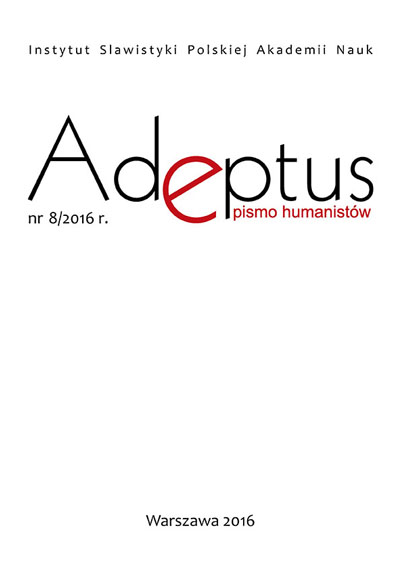Orestes bojownikiem ruchu oporu, czyli mit Atrydów w filmie Podróż komediantów Theo Angelopoulosa
Orestes as a resistance fighter, or the myth of the Atreides in Theo Angelopoulos’s film The travelling players
Author(s): Iga ŁomanowskaSubject(s): History, Fine Arts / Performing Arts, Cultural history, Social history, Recent History (1900 till today), Film / Cinema / Cinematography
Published by: Instytut Slawistyki Polskiej Akademii Nauk
Keywords: myth; Orestes; Theo Angelopoulos; Greece;
Summary/Abstract: The paper examines the use of the Atreides myth in Theo Angelopoulos’s film The travelling players (1975) in the context of the director’s interpretation of the phenomenon of myth. Angelopoulos treated myth as a set of archetypical situations and patterns of conduct constantly reproduced in the history of the world. He intertwined elements of classical stories with the history of Greece and the Byzantine tradition, thus showing their universal character. In The travelling players, Angelopoulos used the story of betrayed and murdered Agamemnon, who is avenged by his children: Orestes and Electra, but he moved it into modern times, setting the film in Greece of the 1940s and 1950s. The myth is reproduced with modulations: the most important events take place as a result of interventions of History, not fate or decisions of the gods. Moreover, the characters’ conflicts are enriched with a political dimension, as Angelopolous portrays the discord between their ideological stances. But the members of the acting company are as helpless in the face of events as the family of the king of Argos.
Journal: Adeptus
- Issue Year: 2016
- Issue No: 08
- Page Range: 18-28
- Page Count: 11
- Language: Polish

